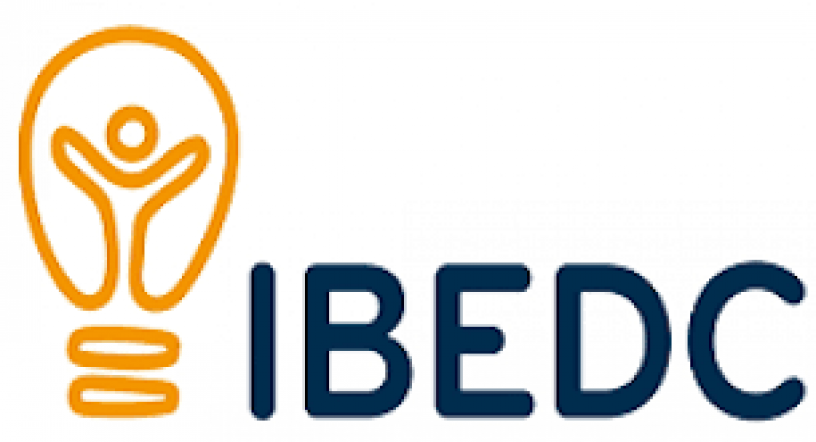Banking
AMCON Acquires N3.7tr Bad Loans from Banks

**Pumps N2.2tr into 10 Banks
By Dipo Olowookere
Over 12,000 Non-Performing Loans (NPLs) from 22 banks worth N3.7 trillion have been acquired so far by the Asset Management Corporation of Nigeria (AMCON), Business Journal is reporting.
AMCON was created by Federal Government to be a key stabilizing and re-vitalizing tool aimed at resolving the non-performing loan assets.
According to the report, the sum of N2.2 trillion has been injected as financial accommodation to 10 commercial banks in order to prevent systemic failure in the banking sector. This has contributed in stabilising the financial system in Nigeria.
Records from AMCON also indicate that about N3.66 trillion of depositors’ funds were protected since the creation of the corporation during the 2008/2009 financial crisis while approximately 14,000 jobs were saved as a result of AMCON’s intervention in the banking sector.
Meanwhile, leading legal luminaries including the former Chief Judge of the Federal High Court, Justice I. N. Auta and the President of Court of Appeal, Justice Zainab Adamu Bulkachuwa have joined the campaign by the management of AMCON) in calling for a paradigm shift in debt recovery processes in Nigeria.
Such shift according to them would act as act as panacea, if indeed the Corporation were to meet its mandate of resolving its huge outstanding obligation.
Current AMCON management under the leadership of its Managing Director/Chief Executive Officer, Mr Ahmed Kuru, upon assuming office and reviewing the challenges as well as bottlenecks inhibiting recoveries mounted a strong campaign that the current practice where habitual and recalcitrant debtors are treated with kid gloves, especially by agencies of government would not help AMCON resolve these loans before its sunset date.
According to Justice Auta, the approach to debt recovery and resolution must change at this point in the life of AMCON especially going into 2018 and beyond because the Corporation came as a child of necessity at the time it was created with all the good intentions in the world to recalibrate the beleaguered economy of the country at the time.
In his words, “Nigeria witnessed the 2007 global financial crisis, which was caused by insolvency, illiquidity, poor corporate governance and outright financial crimes.
“However, with the creation of AMCON by the federal government, no bank has been liquidated, depositors’ funds are safe and no bank has been subject to collection queues.
“The financial crisis led to the depression in value of the securities created against these defaulting loans thereby leaving the banks with an unfortunate inability to recover their losses.
“The effect of such monumental exposure was that banks were unable to sustain the equilibrium of lending required to maintain a vibrant economy.
“This in turn led to higher interest rates and an inability to perform the bank’s primary functions of financial intermediation like the pooling of savings and lending.”
Explaining further, he said, “In addition to significant reduction in lending to customers, financial crisis created by non-performing loans can result in breakdown of interbank lending, which in turn leads to drastic drop in liquidity of banks and a consequent reticence or direct inability to advance loans to the broader public.
“Collectively, these factors create a vicious cycle resulting in a hike in interest rates; concomitant default and insolvency; volatility of currency values; a drop in investments and general stagnation of the economy among other crisis.”
Justice Auta, having enumerated the facts, argued that it is extremely important for all stakeholders, especially Judges to note the correlation between bank failure, which AMCON saved, and a large concentration of non-performing loans.
He added that Judges have critical role to play in the insulation of the macro-economy from fragmentation since most disputes that relate to banking, which AMCON currently shoulders are presented before them.
Describing the AMCON framework as “extremely complex” he said AMCON’s goal can only be accomplished if all stakeholders, especially the entire hierarchy of the bench appreciates the fundamental underpinnings of its regime.
Lending her voice to Justice Auta’s position, Justice Bulkachuwa in her own analogy argued that since the rise of the financial sector is tied to economic growth, Nigeria’s economy, the livelihood and wellbeing of the citizenry are inextricably related to finance. She said all over the world, whenever the economy goes into crisis, governments across the world intervene to stabilise the macro-economy, which AMCON did in the case of Nigeria.
But with what she described as “deliberate reluctance” of debtors to redeem their obligations to AMCON, Justice Bulkachuwa said: “Having realised deliberate reluctance of debtors to redeem their obligations to AMCON, it would seem that AMCON has limited options other than resorting to our courts to enforce its enormous powers towards debt recovery. To recover as much debt as possible within its defined lifespan, expediency is essential if AMCON is to achieve its value maximization and financial stability goals.”
Corroborating the position of the two distinguished Justices, Mr Kuru submitted that AMCON is currently indebted to the CBN to the amount of N4.7 trillion, which is more than half of the proposed 2018 national budget.
Aside that, more than 70 per cent of AMCON’s Eligible Bank Asset (EBA), portfolio is also locked in one form of litigation or the other meaning that without the support of the judiciary, AMCON cannot see the light of day.
On the back of that, he said there is also a rising number of appeals emanating from trial courts on AMCON cases, adding that at this stage in AMCON’s existence, expeditious determination of appeals brought before the courts remains key to AMCON’s ability to resolve all outstanding assets and prevent the undesired economic consequences of failure to recover the assets. The inability to resolve the debt he argued would have dire implications for the entire Nigerian economy.
Banking
CIBN to Back ACAMB on Professional Development, Industry Advocacy

By Modupe Gbadeyanka
The Chartered Institute of Bankers of Nigeria (CIBN) has promised to support the ambitious plans of the Association of Corporate and Marketing Professionals in Banks (ACAMB).
At a meeting between the leaderships of the two organisations on Tuesday, the president of CIBN, Professor Pius Deji Olanrewaju, said it was impressed with the capability development and the undergraduate mentorship schemes of ACAMB under its leader, Mr Jide Sipe.
The CIBN chief commended the forward-thinking vision of the group, saying it had raised standards across Nigeria’s banking sector.
“ACAMB’s support has given CIBN and the banking sector brand equity,” he said, praising the association’s record in reputation management. recalling ACAMB’s role in addressing crises within the sector, describing the partnership as strategic and beneficial.
He further pledged support for ACAMB’s 30th anniversary in September 2026, its AGM, and other programmes, including fundraising initiatives.
“I want to assure you that everything you have presented today has been clearly noted and will be acted upon.
“We are fully committed to working closely with you so as to translate these discussions and vision into measurable progress. Our shared goal is to strengthen the sector, protect its reputation, and enhance its public image in a meaningful and lasting way.
“This meeting discussed various initiatives and reforms crucial for the future of our industry, including the need for continuous training and adaptation to new programs,” Mr Olanrewaju stated.
Speaking at the meeting, the president of ACAMB described the visit as a crucial first step in his tenure, aimed at contributing significantly to giving flight to his vision and that of ACAMB.
“When we assumed office, one of the first things we agreed on was the need to visit key stakeholders.
“However, before reaching out more broadly, we felt it was important to begin with our primary constituency and core stakeholders. We want them to understand the direction we are taking and to support the work we are doing, so that ACAMB can achieve greater success than it has in the past.
“We couldn’t have properly started our tenure without this very important meeting with the CIBN,” Mr Sipe stated
He introduced the newly constituted ACAMB Exco, which includes the 2nd Vice President, Morolake Phillip-Ladipo; General Secretary, Olugbenga Owootomo; Assistant General Secretary, Ademola Adeshola; Publicity Secretary, Abiodun Coker; and Executive Secretary, Fadekemi Ajakaiye.
Banking
All Set for Second HerFidelity Apprenticeship Programme

By Modupe Gbadeyanka
Registration for the second HerFidelity Apprenticeship Programme (HAP 2.0) organised by Fidelity Bank Plc has commenced.
The Divisional Head of Product Development at Fidelity Bank, Mr Osita Ede, informed newsmen that the initiative was designed to empower women with sustainable entrepreneurship skills.
The lender created the flagship women-empowerment initiative to equip women with practical, income‑generating skills and structured pathways to entrepreneurship.
“HerFidelity Apprenticeship Programme 2.0 reflects our commitment to continuous improvement. Having evaluated feedback from the first edition, we have returned with stronger partnerships and deeper mentorship programmes to ensure that women acquire not just skills, but sustainable economic opportunities,” he said.
“At the heart of the programme is guided, real‑world learning. Participants will undergo intensive apprenticeship training under reputable institutions and industry experts across select fields such as hair styling, shoe making, auto mechatronics, and interior decoration,” Mr Ede added.
He noted that HerFidelity Apprenticeship Programme 2.0 goes beyond skills acquisition by offering participants a wide range of business advisory services. These include business and financial literacy training, mentorship support throughout the apprenticeship journey, access to Fidelity Bank’s women‑focused and SME financial solutions, as well as guidance on business formalisation and growth strategies.
Further emphasising the bank’s vision, Mr Ede said, “By integrating structured mentorship with entrepreneurial development, Fidelity Bank is positioning women not just as trainees, but as future employers, innovators, and economic contributors within their communities. This aligns with our mandate to help individuals grow, businesses thrive, and economies prosper.”
Banking
The Alternative Bank Opens New Branch in Ondo

By Modupe Gbadeyanka
A new branch of The Alternative Bank (AltBank) has been opened in Ondo State as part of the expansion drive of the financial institution.
A statement from the company disclosed that the new branch would support export-oriented agribusinesses through Letters of Credit and commodity-backed trade finance, ensuring that local producers can scale beyond state borders.
For SMEs, the bank is introducing robust payment rails, asset financing for equipment and inventory, and supply chain-backed facilities that strengthen working capital without trapping businesses in interest-based debt cycles.
The Governor of Ondo State, Mr Lucky Aiyedatiwa, represented by his Chief of
Staff, Mr Olusegun Omojuwa, at the commissioning of the branch, underscored the importance of financial institutions in economic development.
“The pivotal role of financial institutions to economic growth and development of any economy cannot be overemphasised. It provides access to capital, supporting small and medium-scale enterprises and encouraging savings.
“Therefore, I have no doubt in my mind that the presence of The Alternative Bank in Ondo State will deepen financial services, create employment opportunities and stimulate economic activities across various sectors,” he said.
In her remarks, the Executive Director for Commercial and Institutional Banking (Lagos and South West) at The Alternative Bank, Mrs Korede Demola-Adeniyi, commended the state government’s leadership and outlined the lender’s long-term vision for Ondo State.
“As Ondo State steps into its next fifty years, and into the future anchored on the sustainable development championed during the recent anniversary celebrations, The Alternative Bank is here to be the financial engine for that vision. We didn’t come to Akure to hang banners. We came to fund work, farms, shops, and factories.”
With Ondo State’s economy anchored largely on agriculture, particularly cocoa production, poultry farming, and other cash crops, alongside a growing SME and trade ecosystem, AltBank is deploying sector-specific financing solutions tailored to these strengths.
For cocoa aggregators, processors and poultry operators, the bank will provide production financing, facility expansion support, machinery lease structures, and structured trade facilities under its joint venture and cost-plus financing models, with transaction cycles of up to 180 days for commodity trades and longer-term structured asset financing for equipment and infrastructure.
The organisation is a notable national non-interest bank with a physical network now surpassing 170 locations, deploying capital to solve real-world challenges through initiatives such as the Mata Zalla project, which saw to the training of hundreds of women as electric tricycle drivers and mechanics.
-

 Feature/OPED6 years ago
Feature/OPED6 years agoDavos was Different this year
-
Travel/Tourism10 years ago
Lagos Seals Western Lodge Hotel In Ikorodu
-

 Showbiz3 years ago
Showbiz3 years agoEstranged Lover Releases Videos of Empress Njamah Bathing
-

 Banking8 years ago
Banking8 years agoSort Codes of GTBank Branches in Nigeria
-

 Economy3 years ago
Economy3 years agoSubsidy Removal: CNG at N130 Per Litre Cheaper Than Petrol—IPMAN
-

 Banking3 years ago
Banking3 years agoSort Codes of UBA Branches in Nigeria
-

 Banking3 years ago
Banking3 years agoFirst Bank Announces Planned Downtime
-

 Sports3 years ago
Sports3 years agoHighest Paid Nigerian Footballer – How Much Do Nigerian Footballers Earn



















